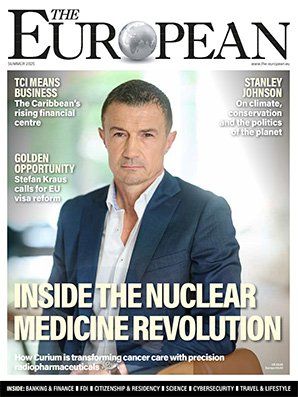Women make up just 27% of Spanish venture capital teams

The results are part of the “DayOne Observatory” initiative, which analyses and disseminates information on the entrepreneurial sector
Private capital investments in Spain reached a record volume in 2020, totalling €6.27 billion, a growth of 33% of the volume reached in 2019. However, in this booming sector, diversity does not move at the same pace: while many of the jobs that are not directly related to investment (administrative tasks, investor relations and platform) are held by women, gender parity is not the norm in the investment teams.
This is one of the findings of the first study that analyses diversity in Spanish investing firms, especially in venture capital. It was prepared by the international non-profit association Diversity VC, which is supported by CaixaBank through DayOne, its division specialising in technology and innovation companies and its investors. It is also backed by Osborne Clarke.
As part of the study, information from 86 firms in Spain’s investing ecosystem was analysed, including 58 venture capital firms, 11 corporate venture capital companies and a further 17 businesses, including venture builders, crowdfunding platforms and guarantee funds. This first report analyses the diversity of investment teams from different perspectives in order to establish a baseline.
Diversity in Spanish venture capital
In Spain, more than half of all venture capital companies are made up of a maximum of 9 workers. These companies usually employ a small number of people (an average of 11 per company),that range from 2 to 53 people. The partners generally account for 36% of the staff, a similar percentage to that of the investment team, which accounts for 32.8%.
The main industries in which these venture capital funds invest are Information and Communication Technologies (74%), Biotechnology (14%), Social Impact (2%) and Energy, Industry and Construction.
In decision-making positions, only 12% of general members of venture capital firms are held by women, while in corporate venture capital, this percentage rises to 25%. Furthermore, as the study shows, only 12.4% of partners are women, and if the entire staff is considered (including partners, investment team, operations and back office team), women make up 27%.
The sectors with the highest number of women in decision-making positions (partners or directors) are Social Impact (31.6%) and Biotechnology (24.4%). If the percentage of women in all the teams across the different sectors is considered as a whole, the figures improve, although gender equality has not yet been achieved in any investment sector.
Level of education and experience in the investment sector
If we analyse the level of education in the sector, 63.33% have a master’s or graduate degree, and 26% have an undergraduate degree. If we look at the gender, the level of studies is very similar: 26% of men have at most an undergraduate degree, a percentage similar to that of women (25.4%). Meanwhile, 64.4% of men and 62.7% of women have a graduate degree. As for PhD degrees, the proportion of men with this qualification is higher.
In terms of experience, 38.7% have fewer than 2 years, and 24% have been working in the venture capital sector for more than 8 years. The study makes it clear that there are more professionals at either extreme, which can be positive since new hires can learn from veteran employees.
Venture capital is one of the main sources of financing for start-ups in their initial stages, when they are still growing and have already used other sources of financing, such as internal savings, funds from friends and family or business angels. Venture capital firms invest a certain amount in start-ups in exchange for a minority stake in the company.
By type of operation, most involve the venture capital segment, with a volume of €833 million in a total of 672 investments. This record is partly due to the large number of investments in excess of €10 million (13 in 2020 compared to 8 in 2019), which helped finance the large rounds led by international funds, coinvesting with national funds.
Most of the sector’s constituents had been entrepreneurs before stepping into the industry. Their professional backgrounds are diverse; for example, 18% were previously consultants.


